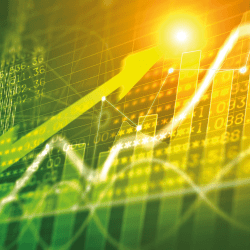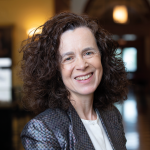Capitalism reloaded

Harvard Business School academic Rebecca Henderson talks to Alex Katsomitros about her latest book, and her vision for a cleaner, more equitable economic model
In 2012, when Erik Osmundsen became CEO of Norwegian waste handling company Norsk Gjenvinning (NG), he faced an uphill task. Riding along with trucks hauling garbage to landfills, Osmundsen realised that the company was a slow-moving behemoth. Many of its employees would mislabel waste, or dispose of it illegally, while some managers were misreporting their numbers. When he asked for explanations, a terse reply would come: “That’s how it’s always been around here.”
Osmundsen was determined to transform NG into a modern recycling business. He implemented a strict compliance policy, with infringement resulting in immediate contract termination. Using publicity to attract global brands eager to pay higher prices, NG expanded abroad, increasing its margins and out-competing rivals. Currently, it is a global seller of industrial recycled raw materials and one of Europe’s most profitable companies in the sector.
Don’t fake authenticity
Companies like NG defy shareholder value maximisation, the sacrosanct axiom of modern capitalism, claims Rebecca Henderson, a British-American economist who teaches at Harvard Business School, in her latest book Reimagining Capitalism in a World on Fire. Milton Friedman’s famous aphorism that the only social responsibility of business is to increase profits, is not only outdated, Henderson argues, but also harmful in the long term. Instead, we should aim for what she calls “purpose-driven” businesses with a sense of mission incorporated into their business models and corporate structures. These firms generate “shared value”: not just profits, but also benefits distributed across the community. However, Henderson warns that purpose must not be a means to an end: “You can’t decide to be authentic because it will be good business. That wouldn’t be authentic. Becoming authentically purpose-driven is all about exploring the boundary between purpose and profit – about choosing to do the right thing and then fighting hard to find the business case to make it possible,” she writes in the book.
This might be an easy task for startups, but for legacy companies it takes a bigger effort. They need to implement what Henderson calls “architectural innovation”: changing the relationship between the components of their organisational structures, without changing the components themselves. Henderson is no stranger to this process. As a business advisor, she worked with GM when it was competing with Toyota. She was also at Kodak when the film business was defeated by technologies its own engineers invented, and with Nokia before Apple stole its mojo with its fancy smartphones. She knows that change can be slow and frustrating. “It takes a deep conversation about what the goals of the company are,” she says. Identifying the right purpose makes it easier to spot what kind of architectural innovation is necessary. “You need to think about embedding that purpose in the structure and strategy of the corporation,” she says. The upside is an increase in trust. “If you make expensive commitments to doing the right thing, it helps your employees, your suppliers and your customers believe you mean this,” Henderson argues. Sooner or later, the bet pays off. Purpose-driven firms are more resilient in the face of adversity, be it a pandemic or climate change, and detect opportunities that others can’t see.
Rewiring finance, the beating heart of capitalism, is a crucial step to a more ethical economy. Henderson hopes that ESG metrics, which measure the environmental and social footprint of firms, will help investors embrace shared value. One reason why these are high priests of short-termism, she claims, is that they often miss good data. For every short-selling hedge fund there is also a venture capital firm eager to invest in a loss-making startup, if measurable potential is there. This is already happening, with more than $19tn invested under ESG criteria in 2018.
The Great Reset
Reimagining Capitalism was published in April 2020, just when most countries started locking down. Henderson’s book tour was cancelled. “I was deeply concerned that the book would just vanish,” she remembers. As it turns out, it couldn’t have landed at a better time, with Covid-19 throwing into question everything we knew about how the economy works. “The pandemic forced people to think about the responsibility of business. One CEO said to me, ‘I realised I had the lives of my employees in my hands, and I had to take this seriously,’” Henderson says. “It opened the door to thinking more broadly by making it clear that disasters can happen.”
One year on, we live in a different world, as if a comet has wiped out every shred of conventional economic wisdom that remained intact after the Great Recession. Governments give away trillions to businesses and citizens. A sense that there is no going back to the profits-above-all era prevails. The “Great Reset”, as the World Economic Forum has dubbed the post-Covid economy, has already started, even if it has been associated with oddball conspiracy theories. Before the pandemic, Henderson says, fighting the good fight seemed fruitless – an afterthought the corporate crowd would discuss at parties before talking serious business. “What the pandemic did was put the questions of racism and inequality directly on the table. Many people suddenly saw that inequality had a human face – that it was about the people who were delivering your groceries, and they didn’t have decent health insurance or enough savings to take time off. The conversation came alive: does business have a responsibility to do something?”
Henderson thinks it does. Part of the answer is self-regulation. She points to the way firms like Unilever, Nestlé and others came together to reduce deforestation in developing countries as an example of the importance of collective action to pressurise governments. “The Malaysian or the Indonesian government will not tackle deforestation on their own. It’s helpful to have a coalition of Western firms saying ‘No, we think this is the right thing and we are willing to pay for it.’”
Competent governance is good for business, Henderson argues. Parts of Reimagining Capitalism read like a call for a rekindled social democracy, singing the praises of Denmark and Germany and their inclusive economies that promote private-public partnerships. “It has become clear that governments have a very important role to play. In Europe, this is a much less controversial statement, although not without controversy,” Henderson says. That is not the case on the other side of the Atlantic where business is more hostile to government action, with many firms promoting climate denialism. “Here in the US, portions of society had persuaded themselves that we could get rid of government by drowning it in the bathtub, and that it wasn’t important to have a competent government that could step up. That sentiment has been shaken.”
Not that Henderson is a socialist. Sure, the fastest way to tackle climate change would be regulation, she acknowledges. “If governments everywhere were fully democratic, transparent, capable, and broadly supported, I don’t think I would have needed to write this book.” The problem, she warns, is that we don’t live in that world. “Many countries have barely any government. And even in the OECD [countries], the whole concept of government is under broad attack with massive disagreement and waves of populism.”
Woke corporations on the rise
If business can do something about populism, Henderson claims, it’s supporting inclusive institutions: “I hoped to open up a conversation about how essential democratically elected, transparent and strong government was to solve problems. And to suggest that business stands to lose if we let these governments go,” she says. Until 2020, few people would listen. The pandemic, coupled with the Black Lives Matter movement and the US election, has awakened business leaders to the dangers of inaction. “Eighteen months ago, when I raised these issues in [board] rooms, people would respond: ‘Rebecca, what do you expect, pitchforks? And then we got pitchforks. We got an invasion of the Capitol. And the business people I know told me: ‘Rebecca, you were right.’’’ It’s a positive sign, she says, that more businesses are standing up for diversity, inclusion and the right to vote – being branded “woke” is becoming a badge of honour, rather than a stigma.
In her native Britain, big business avoided taking a stance before the Brexit referendum, fearing a backlash from customers and even politicians. It takes two to tango, Henderson says: “My understanding is that the [UK] administration at the time wasn’t very interested in hearing from business, so business was frozen out of the conversation. But yes, I do think they should have been more public.” The key, she argues, is openness. “You don’t want to be so public and so visible as to seem to be dominating or skewing the conversation. But business does skew the conversation. That’s why it’s important to be transparent.”
But if business is allowed to go political, won’t politics fall prey to the highest bidder? Henderson argues that the ultimate goal should be to end the dominance of money in politics. “In the end, the issues central to reimagining capitalism can only be addressed by limiting the power of business,” she writes. What she calls for is for business to get involved in “civics”, rather than politics: “They should contribute to the strength and functioning of institutions, rather than advocate for specific policies, although there are a few policies I think they should advocate for.”
One such policy is tackling climate change. Unusually for an economist, Henderson is an unabashed romantic who does not hesitate to wax lyrical about the beauty of nature. Not many business books discuss the author’s love of trees, and even fewer include sentences like this: “We think we exist. But we are songs the universe is singing – glorious songs – but songs that will end. All we can do is try to sing as best we can.” But Henderson is not a conventional economist. She is a Brit who became an American. A Christian who turned Buddhist. A Harvard Business School professor who talks about sustainability to some of the world’s most powerful – and cynical – business leaders. Does she fear she might be pigeonholed as a tree-hugger, or even worse, a social justice warrior in a suit? Not that much. “Before the pandemic, when I suggested to business people that we have to think about climate change, everyone would sort of get that,” she says. “And then I would add, ‘What about inequality and the quality of our institutions?’ And most business people would say ‘Rebecca, these are important problems, but I’m busy.’ These issues seemed very remote. Now, they seem much less remote.”
About the author
 Rebecca Henderson is the John and Natty McArthur University Professor at Harvard University, where she has a joint appointment at the Harvard Business School in the General Management and Strategy units. She is an expert on innovation and organisational change and teaches ‘Reimagining Capitalism: Business & the Big Problems’, in the Harvard Business School MBA Program. Rebecca sits on the boards of CERES, Amgen and of Idexx Laboratories and in February 2019 was named one of three ‘Outstanding Directors of 2019’ by the ‘Financial Times’.
Rebecca Henderson is the John and Natty McArthur University Professor at Harvard University, where she has a joint appointment at the Harvard Business School in the General Management and Strategy units. She is an expert on innovation and organisational change and teaches ‘Reimagining Capitalism: Business & the Big Problems’, in the Harvard Business School MBA Program. Rebecca sits on the boards of CERES, Amgen and of Idexx Laboratories and in February 2019 was named one of three ‘Outstanding Directors of 2019’ by the ‘Financial Times’.


